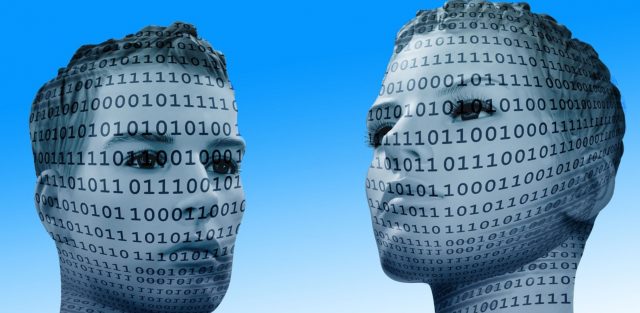
IOTA (MIOTA) Starts Testing Digital IDs In Taipei

The German non-profit enters testing phase of their distributed ledger technology-powered identification system, planned for Taipei citizens in a combined effort between IOTA (MIOTA), and the Taiwan-based start-up BiiLabs, tailored to upscale the South-eastern capital into a modern smart-city.
The innovative project relies not on blockchain- technology but on a revolutionary alternative called the Tangle, created by the Berlin-based Foundation, who describes it as a “block-less distributed ledger which is scalable, lightweight, and for the first time ever makes it possible to transfer value without any fees”
IOTA (MIOTA) has partnered with Taipei city earlier this year, in order to elevate Taiwan’s capital into a fully functioning smart-city. Among the numerous projects discussed between the two parties, a few will be implemented in the city before the end of the year. One of the projects includes digital ID’s built-in the Tangle, making them harder to copy, hack or manipulate by traditional criminal activity around identification documents. The hope is that this will cut down on identity theft and voter fraud, better secure sensitive medical data and help prevent theft of government services.
“With Taipei City always thinking ahead and with IOTA’s technology, this partnership is a strategic move to usher in the era of smart cities to the citizens of Taipei,” said Wei-bin Lee, Commissioner of the Department of Information Technology in the Taipei City Government, in a press release.
The 5th GS Workshop Taipei on “Shaping the Future of an Inclusive and Digital Society” is expected to be built upon the 2017 Workshop of the global economic symposium “Addressing Challenges and Seizing Opportunities in the Digital Economy”. While the 2017 Workshop aimed at identifying general challenges and opportunities that new digital technologies may create, the Workshop this year has a more human-centered focus, aiming at exploring adequate, human-centered, solutions to deal with opportunities and risks being faced by individuals, firms, governments and other organizations while shaping the future of an inclusive digital society.
The GS Taipei Workshop 2018, that took place on March 28, brought together experts from academia, business, politics and civil society from different countries to join the discussions and provide their valuable insights and innovative ideas. Potential solution proposals are expected to be put together as a result of the speeches, addresses and session discussions scheduled.
Among the speakers, Julie Maupin, Chief Policy Officer and Director of Social Impact at IOTA Foundation, who was welcomed warmly by the city of Taipei and had the opportunity to lecture at the parliament, discussing possible future applications for Taipei and for modern smart cities on a global scale.

Previous IOTA roles in the ongoing upgrade of Taipei, included a combined project with Airbox, a company powered by Realtek and ASUS among other networking and sensor specializing companies, as well as legal authorities of Taipei City to create palm-sized artificial trees, with sensors that can detect, analyze and promote information regarding the city’s temperature, humidity, light and air pollution, using the Tangle Network through IoT based applications and Coordinators around the city. The artificial sensors will be placed at citizen areas as well as in 150 elementary schools of the city.
The adoption of distributed ledger-based digital ID solutions for secure authentication continues to gain increased attention on a global scale. For instance, a blockchain-enabled traveler ID pilot that has the backing of Canada and the Netherlands seeks to confirm identities of certain international travelers and build their credibility, resulting in them spending less time in airport screening lanes.
The Netherlands has previously worked with IOTA to create a database built in the Tangle, where citizens could store, authenticate and distribute governmental documents regarding housing, securely, with lightning speed and accuracy.
We are currently experiencing a bad moment when it comes to the DLT market, in general, but that could not stop technological innovation towards a better tomorrow, where new ways of interaction between the IoT networks and modern cities are being developed and used.
What are your thoughts on Smart Cities? How far are we from a global shift to a post-modern world? IOTA is definitely playing a major role in the shape of such cities – what would be other traditional or DLT companies that you think could make a difference in the field? Let me know in the comments below.
Reporting for the Independent Republic, Ross Peili